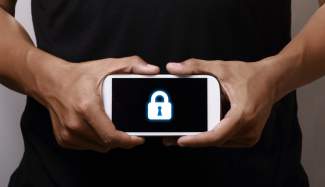Do you share your phone's password with your significant other, roommate, or family member? What about the police. Well now the latter can make you hand that all so secret code over.
Of course, if you don't have anything incriminating on your phone, you have nothing to worry about.
Aaron Stahl was arrested after a woman who was shopping in a store saw him crouch down and extend an illuminated cellphone under her skirt, according to court records. When she confronted him, Stahl told her he had dropped his phone. He ran out of the store when she yelled for help, but police were able to identify him using his car’s license plate number. He was arrested for third-degree voyeurism.
In a police interview, Stahl initially gave verbal consent to a search of his cellphone, an Apple iPhone 5, but withdrew his consent before telling police his four-digit passcode.
Once police obtained a warrant for the phone, they were still unable to access the photos on the phone. Without the passcode, which is known only to the user, even Apple cannot extract the data from the phone because the encryption key is tied to the passcode. After 10 failed attempts to enter the passcode, the phone will lock and potentially erase its contents.
A trial judge denied the state’s motion to compel Stahl to give up his passcode, finding that it would be tantamount to forcing him to testify against himself in violation of the Fifth Amendment.
But the Florida Court of Appeal’s Second District reversed Wednesday, finding that the passcode is not related to any criminal photos or videos found on the phone.
“Providing the passcode does not ‘betray any knowledge [Stahl] may have about the circumstances of the offenses’ for which he is charged,” Judge Anthony Black said, writing for the three-judge panel. – 9to5mac.com
Previous cases allowed police to move forward with searching phones that were unlocked by the use of a fingerprint, but they were literally locked out of the phones if they used a passcode. The appeals court judge could not see why there was a different practice for phones unlocked by fingerprint or by code.
So, if you thought all those incriminating pictures and videos on your phone were protected, think again.
I have always wondered though, if a police officer pulls you over for texting while driving, which is illegal in most states, and if you lock your phone, how will they prove you were texting at the scene of the traffic stop? They could get a warrant and subpoena your phone records, but that would take time and money. Could this new Florida ruling make it understood, common, and legal practice to make people unlock their phone because of probable cause? Just like they can search your car, trunk, glove box, will police be able to search your phone, too?
Just food for thought.
h/t: 9to5mac.com


